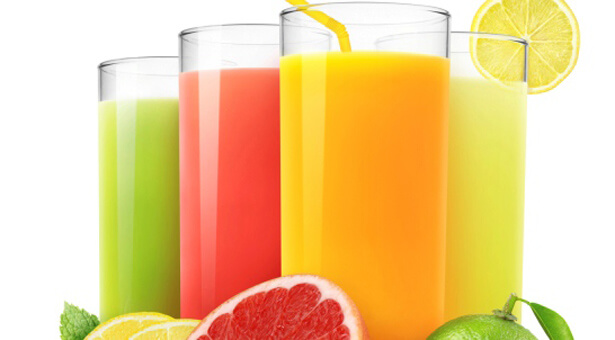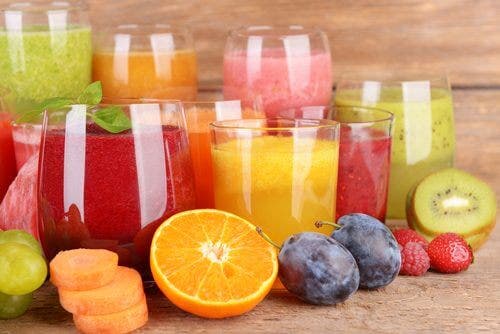Most people consider that fruit juice is part of a healthy and healthy eating habit, and this perception increases, if at breakfast time we must choose between a natural juice and a soft drink.
In fact, many health organizations have issued official statements for people to reduce the consumption of sugary drinks, highlighting the one issued by the World Health Organization (WHO), which establishes that it is necessary to limit the consumption of these drinks to reduce potential health risks (WHO, 2014)
However, recent studies affirm that fruit juices also contain high amounts of sugar , giving rise to a possible relationship between the consumption of fruit juices and being overweight (Delgado, 2017)
For these reasons, we examine evidence that allows us to compare the food value of natural fruit juice and soft drinks .

Comparative balance between fruit juice and soft drinks
Both soda and fruit juice have high caloric content and sugar levels, and this is because fruit juices are made with a greater amount of fruits and concentrate greater amounts of sugar than those contained in a piece of fruit.
This means that both fruit juice and soda can increase your risk of weight gain. This is because both are high in calories but low in fiber, a nutrient that helps reduce hunger and promotes feelings of fullness. Because of this, some people group juices and sodas in the same food group that should be avoided in equal measure if they want to lose weight.

Differences between sugar in juices and soft drinks
However, there is a big difference between natural type sugar and the processed sugar that soft drinks are made from. In addition to the different percentages in which glucose and fructose are found in both, corn syrup contains sugars that are found in free form, unlike natural sugar, which are united and form a molecule.
Soft drinks also have the particularity that they are made with high fructose corn syrup , which is a molecule that can only be processed by the liver, and contributes to the development of metabolic syndrome, an increase in abdominal fat, facilitates the development of cardiovascular disease, type 2 diabetes and certain types of cancer.
At the same time, it reduces the consumption of glucose, which is the molecule that provides the dose of energy that the body requires and that we find to a greater extent in the sugar of natural fruits.

Advantages of fruit juices
However, fruit juice contains vitamins, minerals and beneficial compounds that soft drinks generally do not offer. Specifically, half a cup (120 ml) of fruit juice is rich in most vitamins and minerals, including iron, potassium, magnesium, and B vitamins.
Similarly, fruit juice contains beneficial plant compounds, such as carotenoids, polyphenols, and flavonoids, which can help neutralize free radicals and reduce the risk of disease.
Therefore, drinking small amounts of natural juice can reduce the risk of diseases including type 2 diabetes, heart disease and malnutrition, since it provides healthy and easily digestible nutrients for the body.

conclusion
We can say that both fruit juice and soda are similar in some respects if consumed in large quantities:
- Low in fiber
- High concentrations of sugar
- High concentrations of liquid calories
- They are related to obesity risks
- They increase the risk of diseases such as type 2 diabetes and heart disease.
However, unlike soda, fruit juice contains a balanced molecular composition that provides a variety of vitamins, minerals and beneficial plant compounds that protect us from some diseases. Therefore, when consumed in small amounts, fruit juice is much healthier .

References
- Delgado, R. (2017) Fruit juices and their role in infant feeding. Should we consider them as one more sugary drink? Positioning of the Gastroenterology and Nutrition Group of the AEPap. To: Scielo Spain . [Revised March 2020]
- World Health Organization. (2016) WHO recommends implementing measures worldwide to reduce the consumption of sugary drinks and its consequences for health. Geneva. Recovered from http://www.who.int
- Petre, A. (2019) Is Fruit Juice as Unhealthy as Sugary Soda? For Healthline. [Revised March 2020]